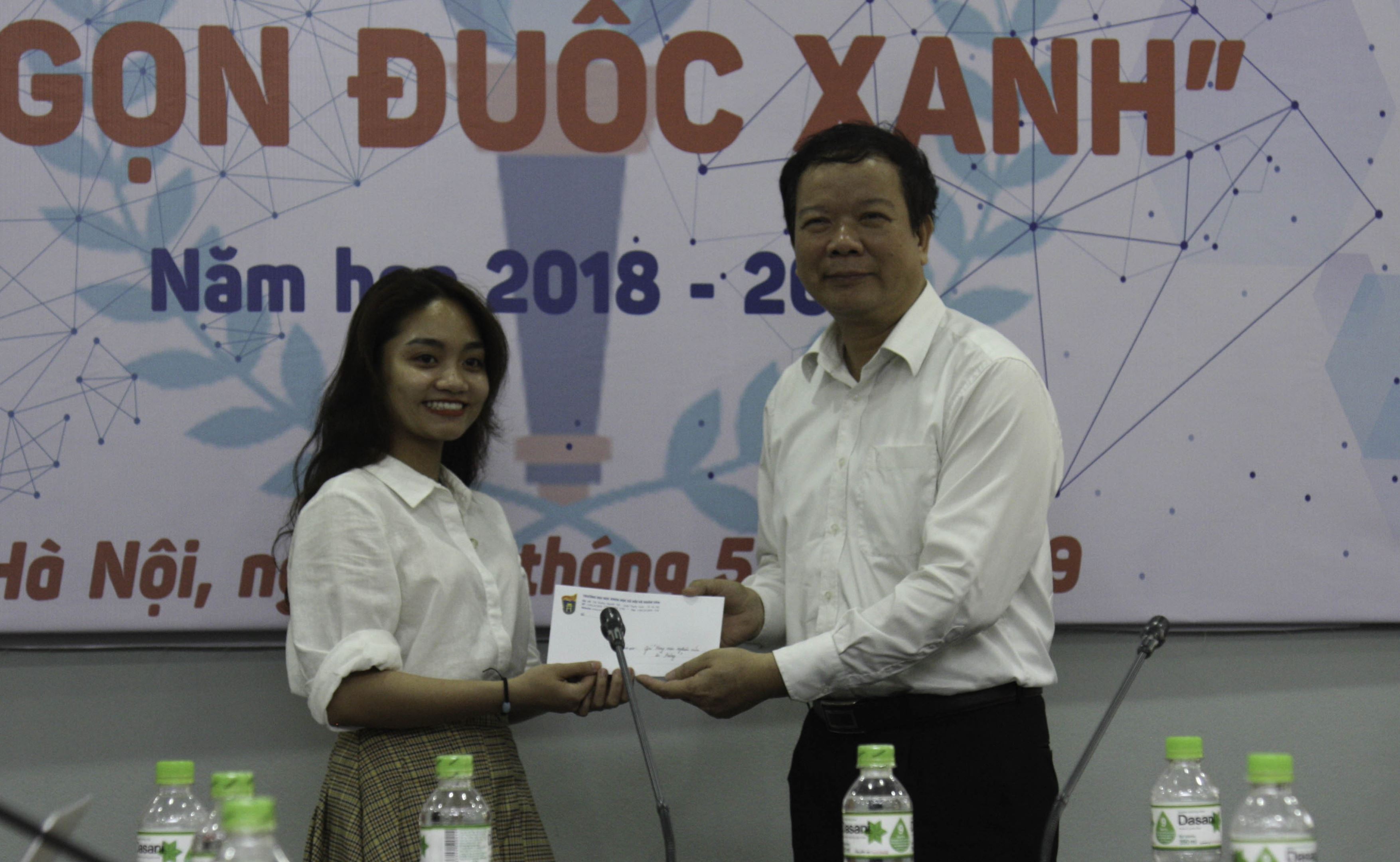
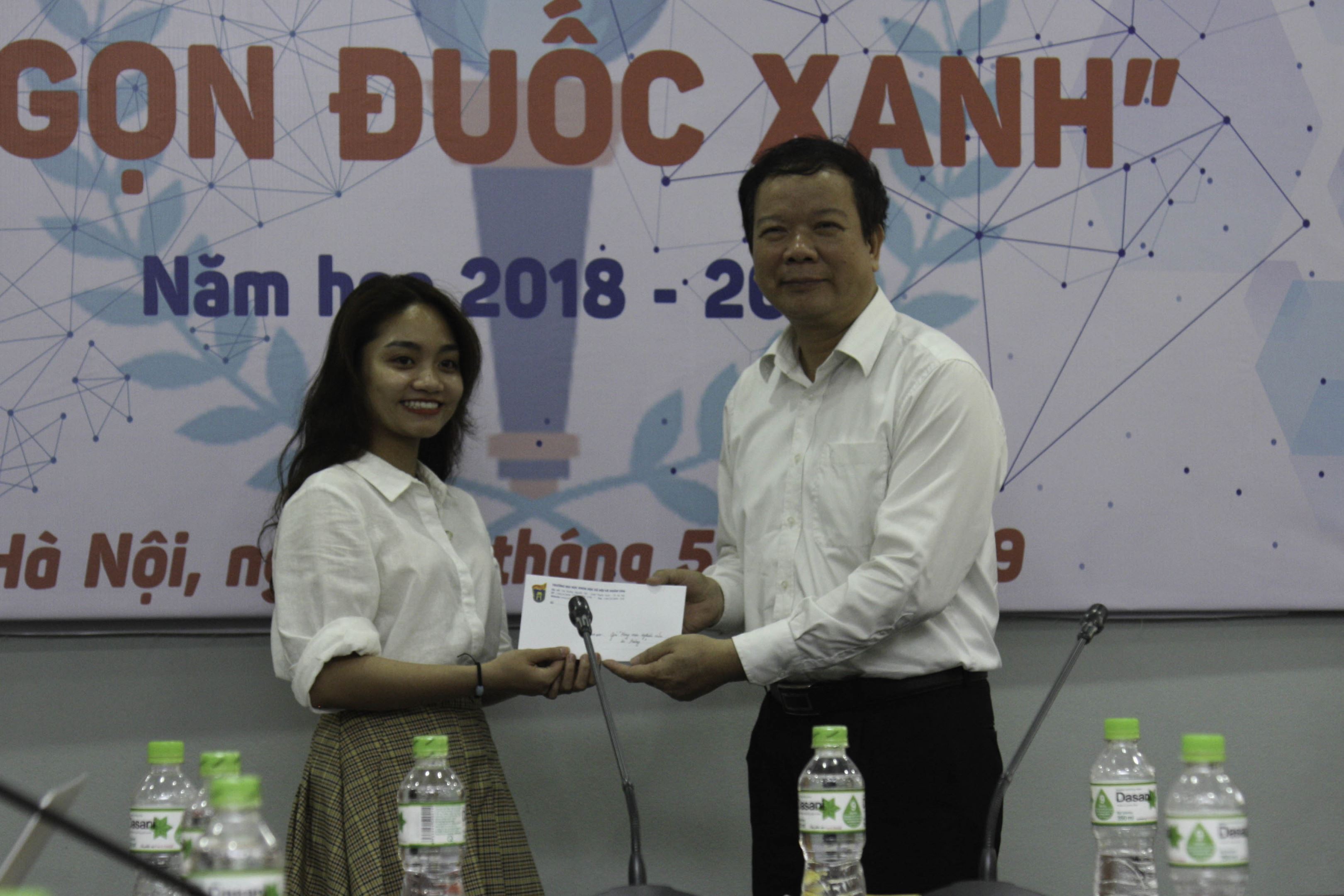
Professor Nguyen Van Kim presents the award for the most impressive research topic.
Ms. Nguyen Thi Hong Tam (Member of the Standing Committee of the Youth Union of the University of Social Sciences and Humanities) said: “This year's conference has seen development in both quantity and quality, with more than 70 research reports from 8 faculties in the university. The Organizing Committee judged through 3 rounds: Round 1 selected 50 topics, Round 2 selected 20 topics, and Round 3 selected 9 topics to participate in today's presentation. The reports show the students' interest and unique perspectives on practical issues related to their lives as well as to the work of the Youth Union and youth movements.”
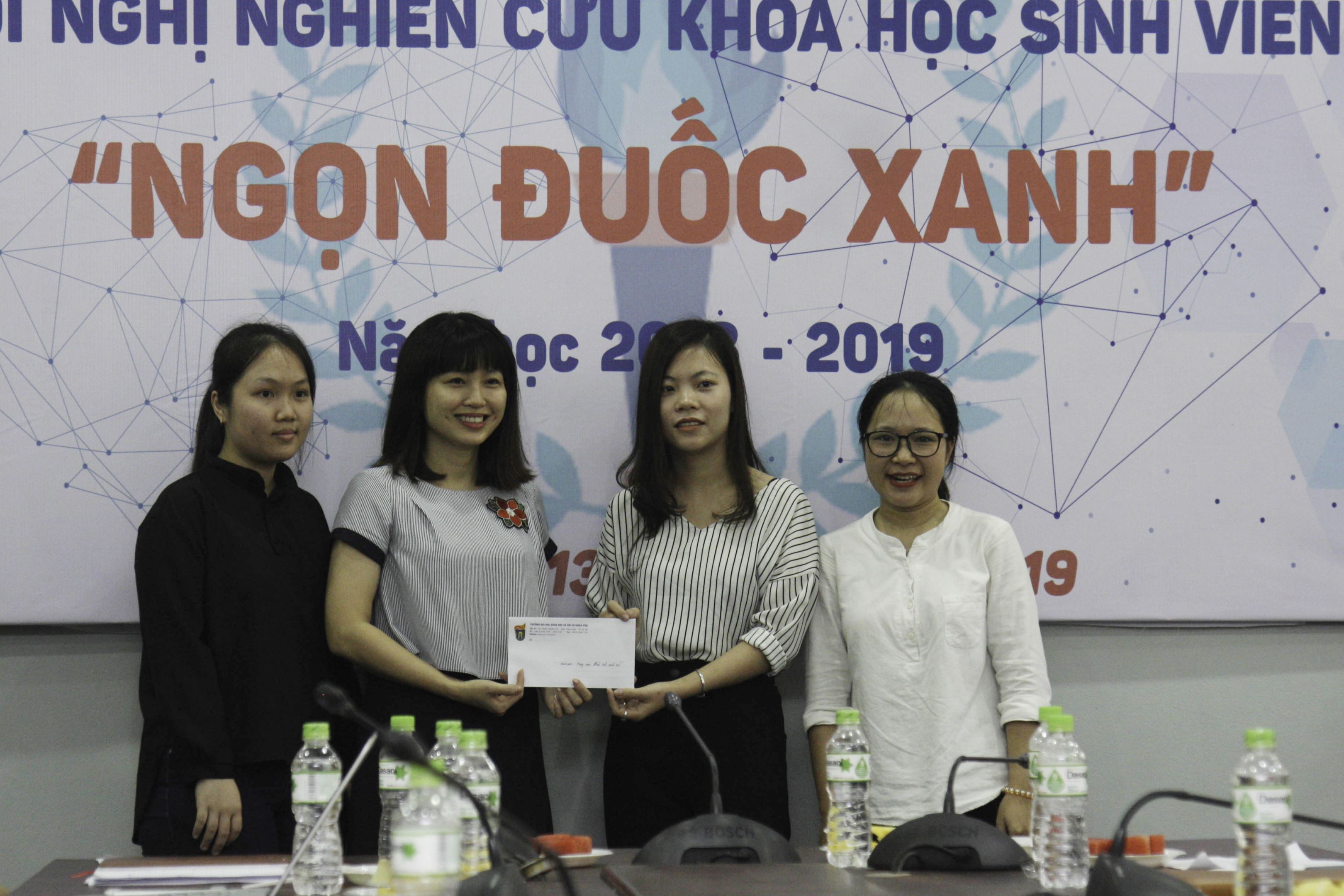
At the conference, the nine best research papers were presented to the judging panel and received feedback, questions, and comments from both the panel and delegates. The judging panel evaluated and awarded prizes to four papers in five categories:Most impressive research topic;Best survey;Excellent application value;Excellent solution;Excellent presentation.
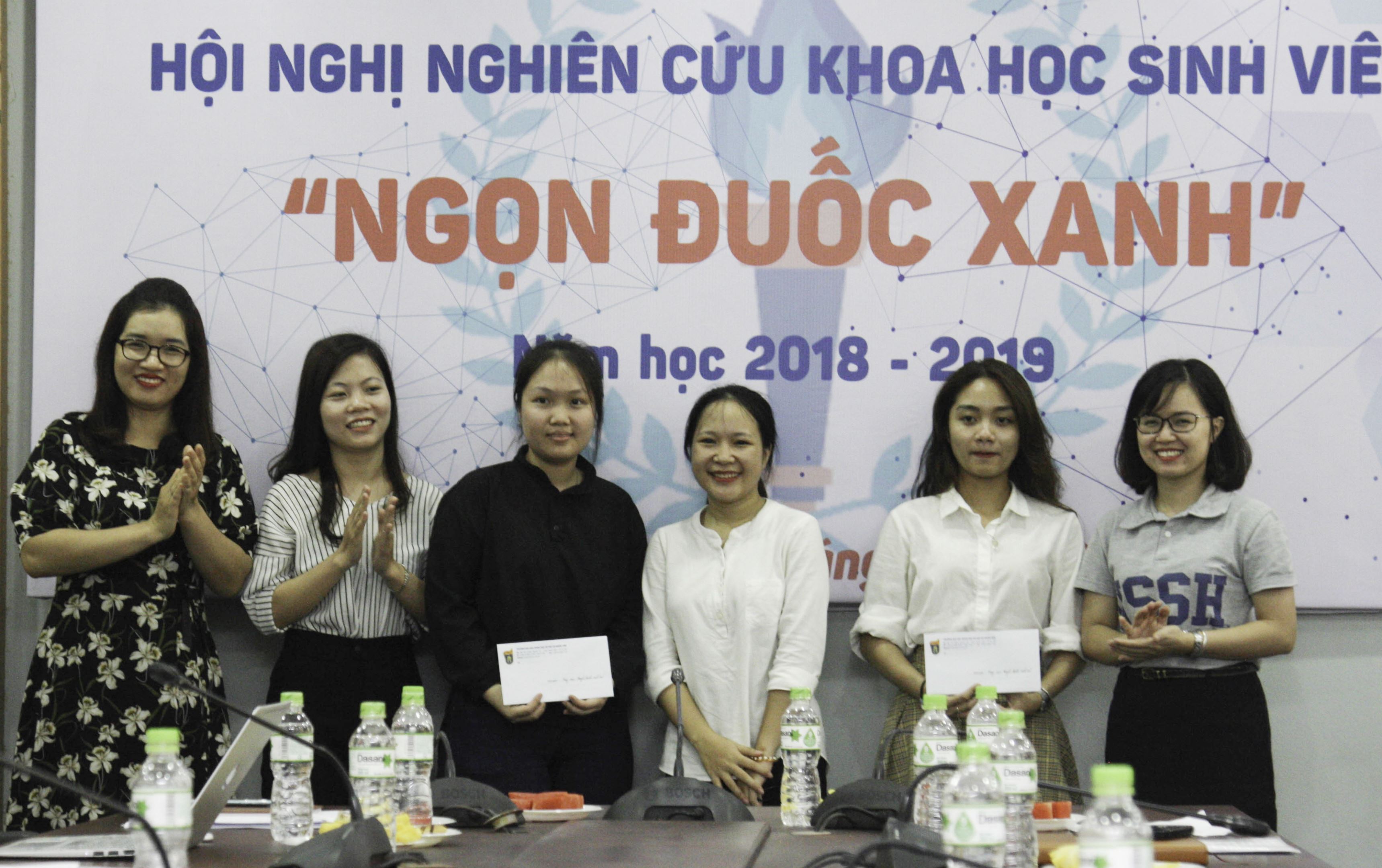
Student Nguyen Thu Hao (Faculty of Sociology) with her thesis "Awareness and behavior regarding cannabis use and factors related to cannabis use among university students in Hanoi" received awards in two categories:Most impressive research topicand shared prizeExcellent presentation.
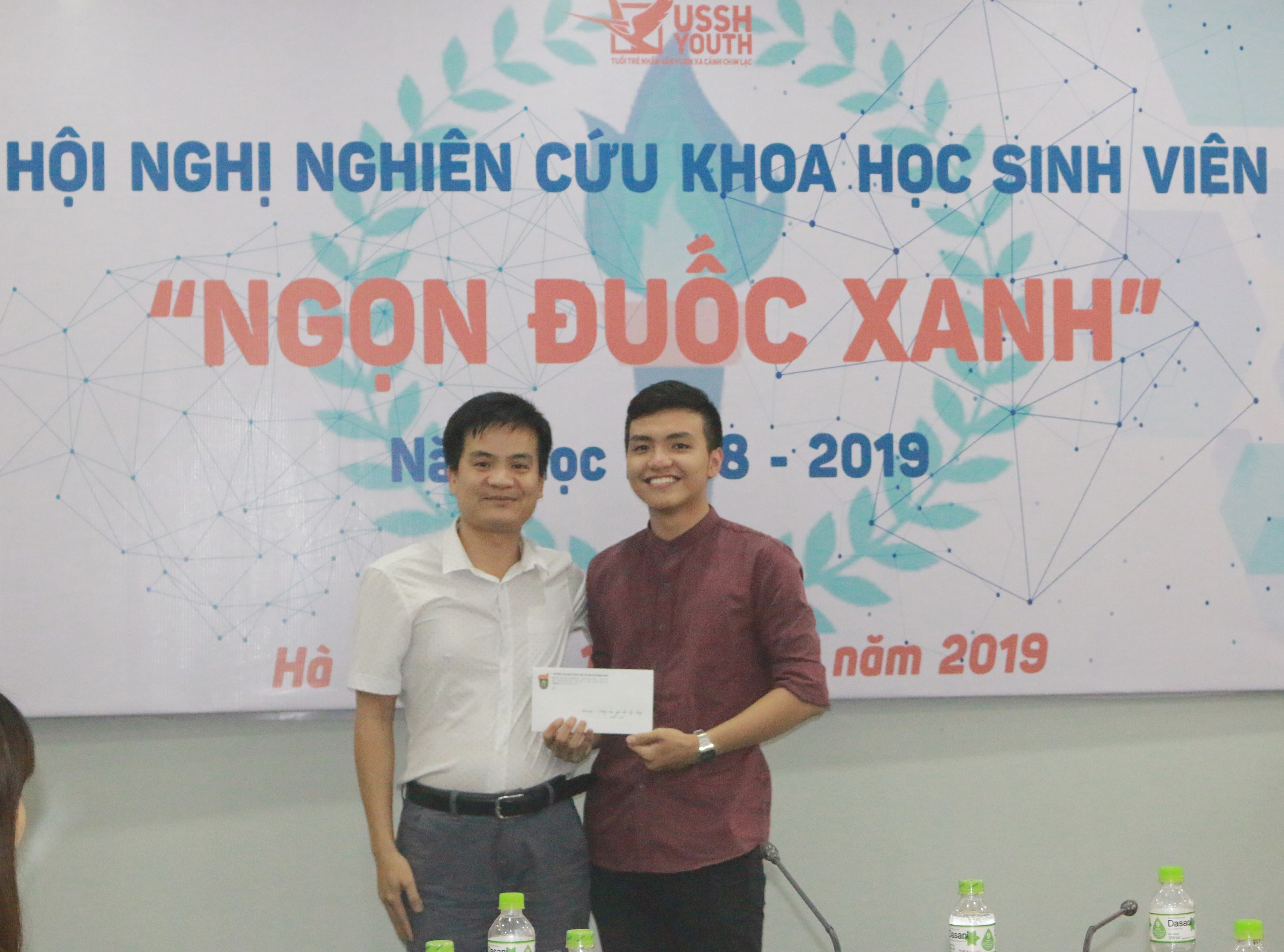
Cannabis is a banned substance in Vietnam, yet it is still used by many young people, including students. However, no research in Vietnam has yet investigated the reality of cannabis use among young people, specifically students. According to Hảo's observations, many of these individuals are intellectuals with knowledge and understanding, and they believe they can use cannabis as a tool to support their studies, work, or recreation. This motivated Hảo to seek answers to this issue. To conduct this research, Hảo employed a participatory observation method with a group of students who use cannabis in Hanoi to obtain practical research results.
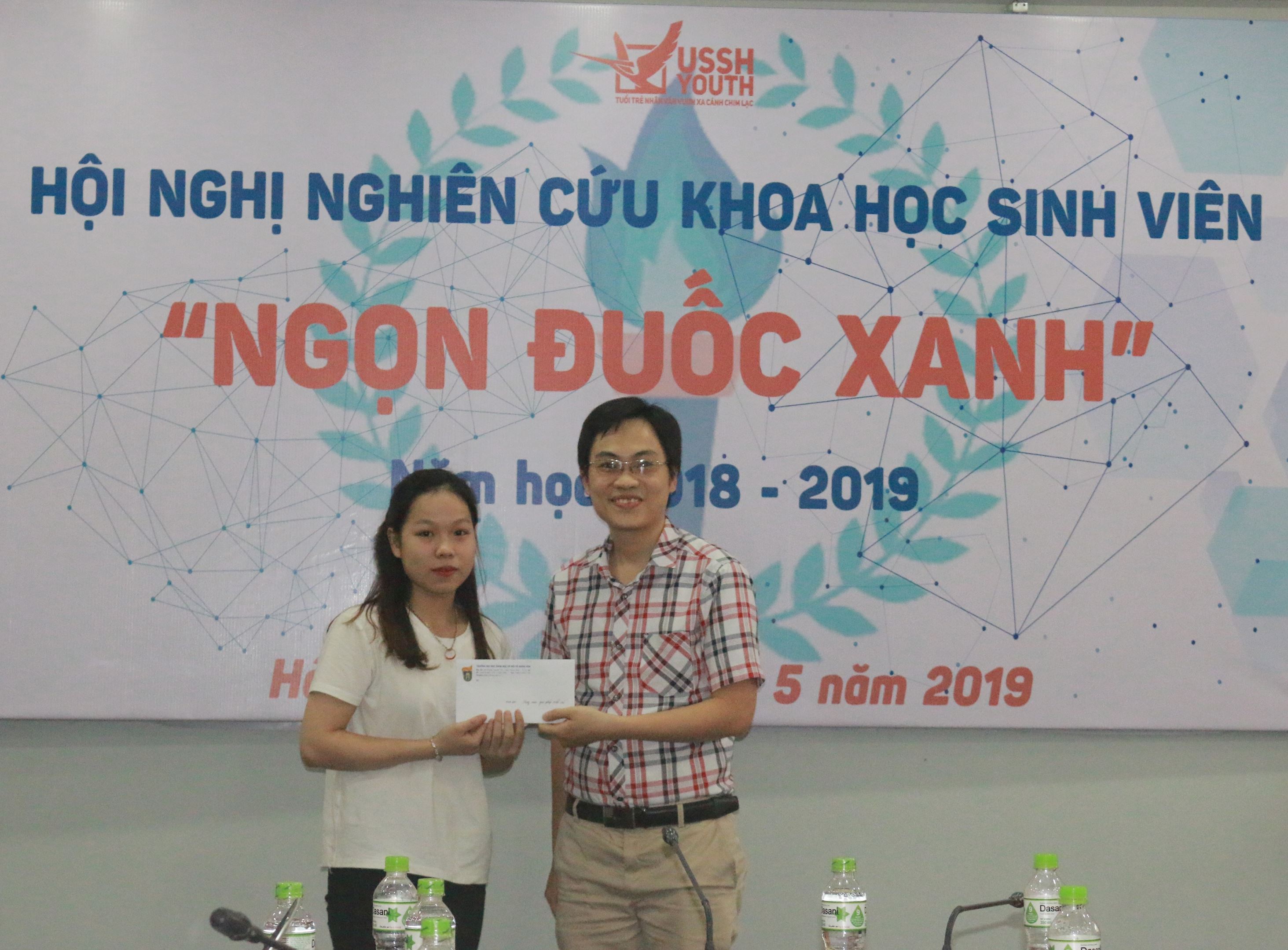
Conquering a challenging topic, pouring her heart and passion into it, and delivering a confident presentation, the awards in two categories are truly well-deserved for what Nguyen Thu Hao has achieved.
Student Nguyen Thu Hao gave a presentation on the topic.
In their research project "The Reading Culture of Students Today," students Nguyen Minh Thuong, Nguyen Thi Thanh Huyen, and Vu Thi Hong Ngoc (Faculty of Sociology) primarily used a questionnaire survey as their research method. The authors presented a picture of the current state of students' reading culture in the 4.0 era using specific data.
Accordingly, 67.8% of surveyed students spend 1-3 hours reading; the rate of reading books and materials through multimedia is increasing; the main types of books and materials students read are textbooks and Vietnamese-language books. Notably, the study also showed a direct correlation between GPA and reading frequency among students. 55.6% of students with excellent GPAs read 1-3 times per week; 44.4% read more than 3 times per week; and no students with excellent GPAs read less than once a week.
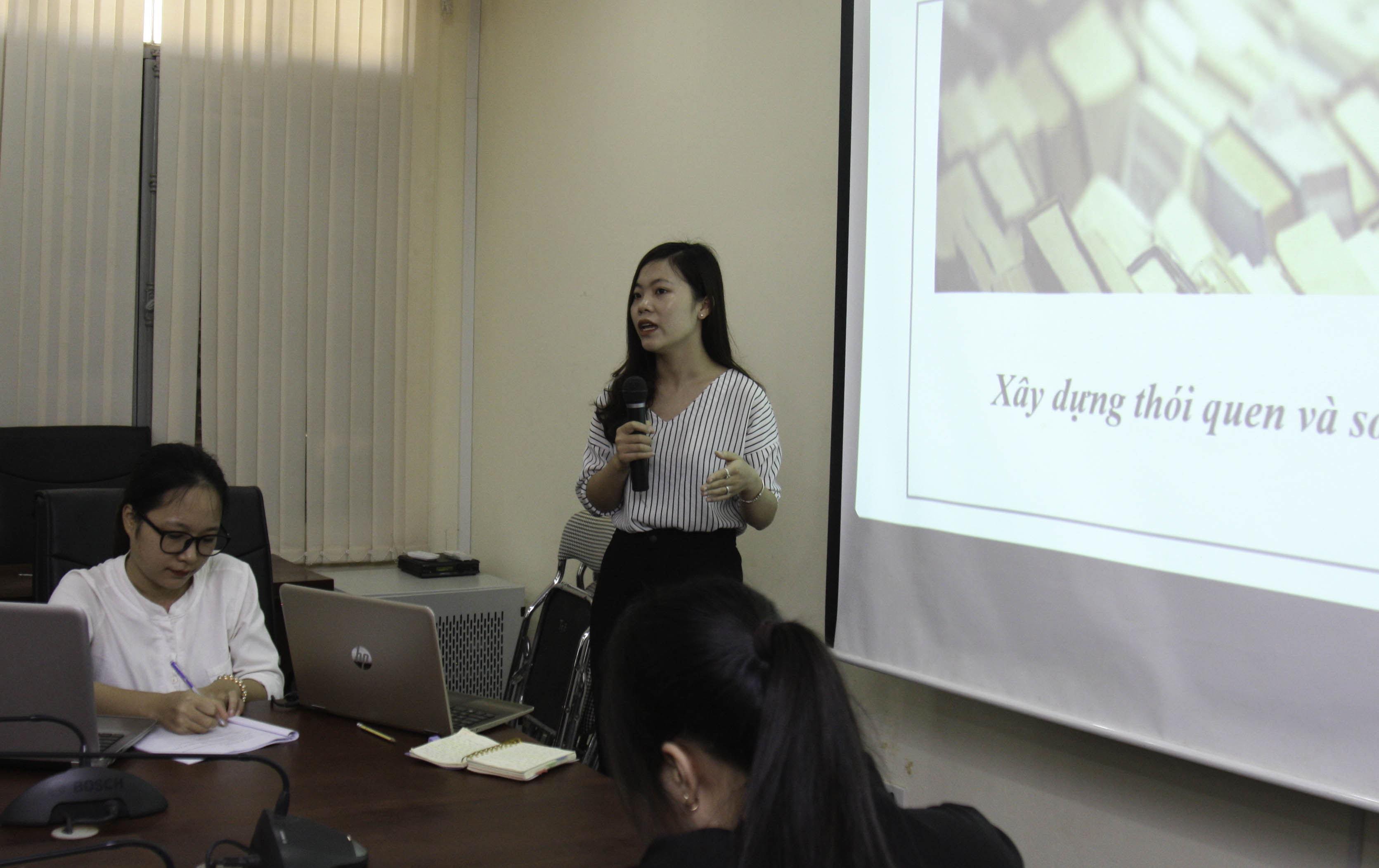
The student group's project focused on reading culture among students.
From there, the authors recommend motivating students to read through: activities and competitions at the class and school levels; applying technology to library book borrowing and returning; focusing on improving the capacity of library management staff; guiding students on how to read books correctly and effectively; changing the way books are presented to be more attractive, with more graphics, images, and sounds...
With meticulous preparation and dedication to their research, the team won awards in two categories.Excellent surveyand shared prizeExcellent presentation.
Student Le Anh Minh (Faculty of Management Science) won the award.Excellent application valueWith the topic "Identifying the difficulties students face in distinguishing between the activities of the Student Union at VNU," the research revealed that the majority of students, especially first-year students, cannot differentiate between activities belonging to the Student Union and those belonging to the Youth Union. Based on this reality, the student proposed recommendations for changing communication methods, approaches to students, and organizational and evaluation methods of the Youth Union and Student Union management to clearly separate the scope of activities of the two organizations and avoid overlap. The topic received attention from both the judging panel and the participating students, with lively discussions and exchanges.
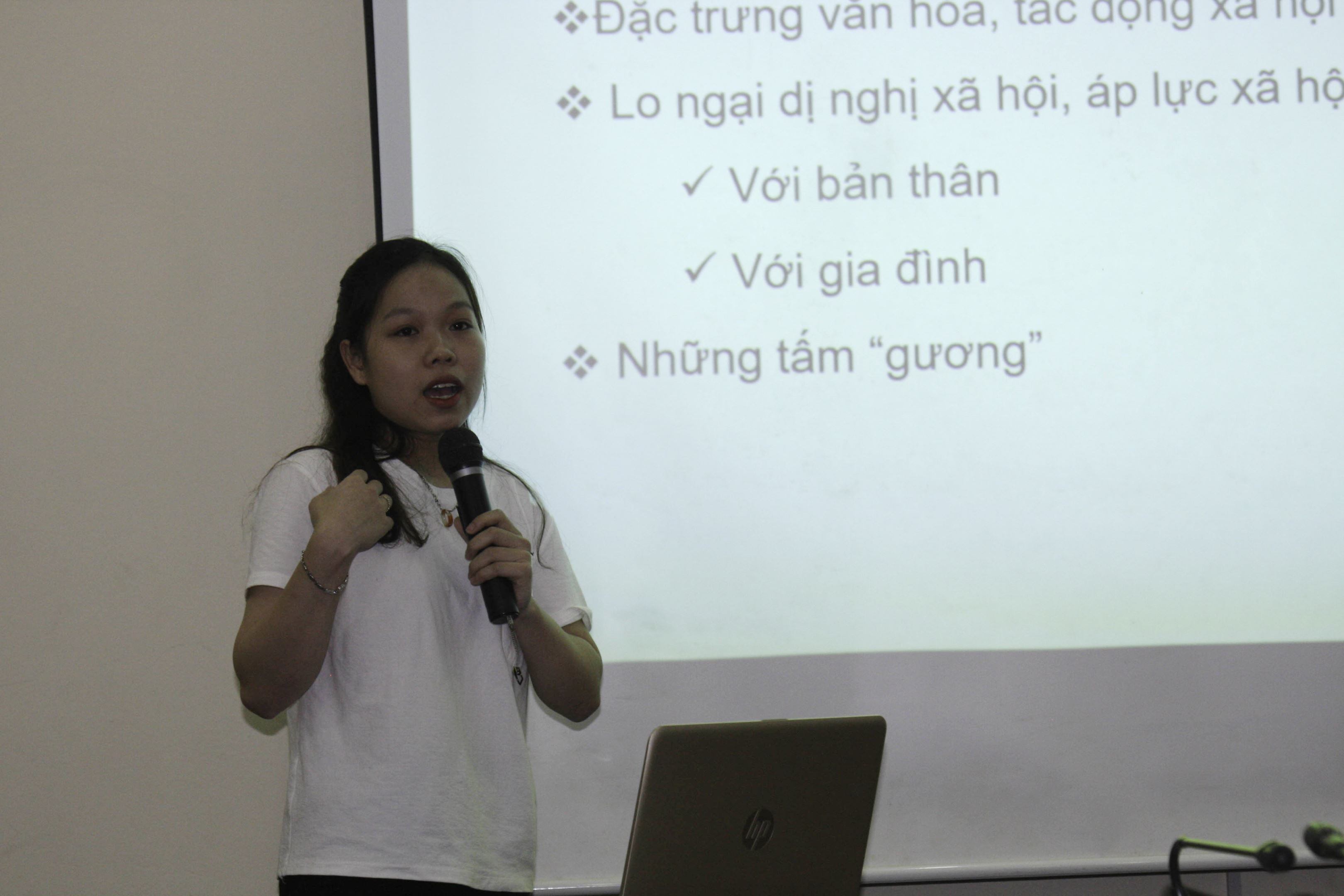
Student Nguyen Hai Yen
Student Nguyen Thi Hai Yen (Department of Anthropology) won the award.Excellent solutionThe topic is "The Decision to Have an Abortion: A Study of the Experiences of Cohabiting Couples in Trieu Khuc, Hanoi." The study explores the reality and underlying reasons behind the difficult decision young people make when choosing to cohabit, and uses in-depth interviews as a method of correction.
During the research, it was found that at least one of the partners in each couple was a student. The author points out two main reasons why couples choose to live together. Firstly, living with a partner saves money, as finding a suitable roommate is difficult, and living with a stranger carries many risks. Living together is a solution chosen by many in this case. Secondly, living together helps couples get to know each other better. Most students agree that living together is advisable and believe that falling in love and living together are two completely different things.
The author also points out two main groups of reasons why couples decide to have an abortion: economic issues and socio-cultural factors. The decision to have an abortion is also influenced by gender stereotypes. Women are often the ones who initiate abortions because having a pregnancy and giving birth before marriage is seen as having greater consequences than men.
The "Green Torch" Student Scientific Research Conference aims to honor scientific research projects by students that address practical issues relevant to students, have applications in the work of the Youth Union and student associations, and the youth movement of the university; and at the same time, help to inspire and promote students' creativity and passion for scientific research.
Author:Nguyen Nga, Le Huy, Van Hai
Newer news
Older news